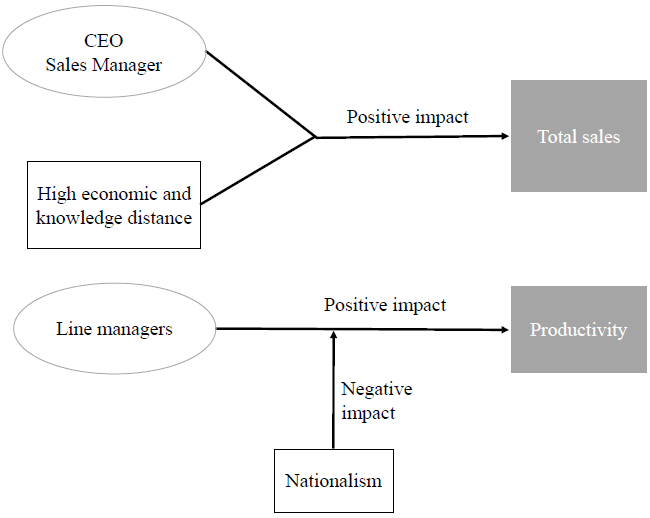| Author Name | Jesper EDMAN (Waseda University) / Riki TAKEUCHI (Naveen Jindal School of Management, University of Texas at Dallas) |
|---|---|
| Research Project | Productivity Effect of HRM Policies and Changing Employment System |
| Download / Links |
This Non Technical Summary does not constitute part of the above-captioned Discussion Paper but has been prepared for the purpose of providing a bold outline of the paper, based on findings from the analysis for the paper and focusing primarily on their implications for policy. For details of the analysis, read the captioned Discussion Paper. Views expressed in this Non Technical Summary are solely those of the individual author(s), and do not necessarily represent the views of the Research Institute of Economy, Trade and Industry (RIETI).
Human Capital (FY2020-FY2023)
Productivity Effect of HRM Policies and Changing Employment System
One of the key challenges for Japanese multinational enterprise is whether and where to employ headquarter expatriates in the management of foreign subsidiaries. We contribute to addressing this issue by theorizing and examining how expatriation in different role positions – e.g. CEO, Sales manager, HR manager or line manager– impact different aspects of subsidiary performance. We examine how these roles influence two facets of subsidiary performance - sales and productivity – and how these effects are moderated by country-specific factors. Controlling for self-selection effects, we find that the impact of expatriate CEOs and sales managers on subsidiary sales is moderately by knowledge and economic distance. Conversely, we find that Japanese line managers have a statistically significant impact on productivity, but that these effects are negatively moderated in settings with strong nationalist sentiments. Take together, our findings point to the contingent effects of both role positions and country-level factors when examining expatriates' impacts on subsidiary performance.
The results of the analysis show that the impact of expatriates varies greatly depending on the role of staff, the particular type of performance indicator, and local country factors. We find that expatriate CEO and sales managers have the greatest impact on sales in countries that are significantly different from Japan in terms of economic development and technological development. In addition, we find that increasing the number of expatriate managers within the organization has a significantly positive effect on the productivity of overseas subsidiaries. However, this positive effect is lower in countries with strong nationalism. Figure 1 outlines these relationships in further detail.
Our results have several implications for policy makers. First, because expatriate managers are essential to increasing the productivity and competitiveness of overseas subsidiaries, policy makers should work to ensure companies are able to relocate crucial staff to overseas locations as smoothly and quickly as possible. Specific forms of assistance include streamlining the visa application process and/or address changes, minimizing the complexity of tax and social security payments due to overseas work, and providing various forms of mobility support, particularly for the accompanying families.
Second, our findings also suggest that the potential negative effects of nationalist sentiments need to be addressed and mitigated. Such sentiments are damaging as they limit the productivity of subsidiaries and the effectiveness of expatriates in particular. One potential strategy is for members of Japan's diplomatic core (i.e. the Ministry of Foreign Affairs) to work proactively with members of the local Japanese business community to carefully manage Japan's image and the legitimacy of its corporations among local citizens. Ensuring a relatively positive image for Japan in countries with high levels of nationalist and/or anti-globalization sentiment can give Japanese companies an advantage over foreign firms from other countries.


